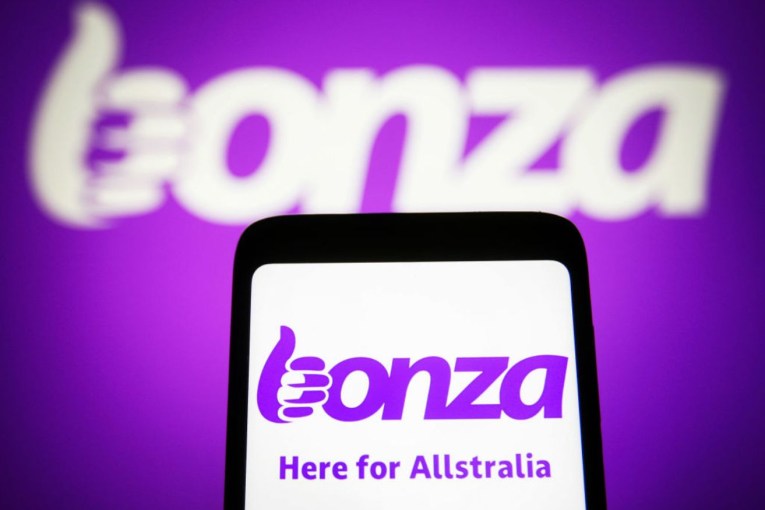Cost stalling sales of electric vehicles as Aussies opt for petrol cars

Australians are divided about their role in the electric vehicle revolution.
A majority are eager to electrify transport, according to a new Australia Institute survey published on Monday, which shows Australians now feel more positively about EVs than petrol cars.
However, only 25 per cent of drivers said they intend to buy an EV in the next decade, compared to 36 per cent who plan to get a new petrol car.
It’s a yawning gap in a country where just 3.8 per cent of new vehicle sales were EVs in 2022 – a figure that experts warn must reach 100 per cent by 2035 to keep net-zero target hopes alive.
Australia isn’t going to be ready to meet its climate goals if the gap between attitudes and intentions doesn’t start closing rapidly, said Noah Schultz-Byard, a South Australia-based director at the Australia Institute.
“We have a lot of catching up to do,” he said.
“We need to sell all EVs by 2035, at the latest.”
Convincing Australian motorists to take the plunge on EVs is shaping up as a key challenge for the Albanese government, which last week unveiled a strategy aimed at pushing down EV prices by introducing mandatory fuel efficiency standards.
It was a watershed moment for climate policy because Australia does not have mandatory fuel standards, sparking criticism that the nation has become a “car park for clunkers”.
But with key details still unclear, experts and advocates say Australia must adopt a world-leading position to have a chance at moving the dial before it’s too late.
EVs too pricey
Fuel efficiency standards have emerged as the battleground for EV adoption because most data shows upfront costs are the biggest barrier to Australians buying EVs.
The Australia Institute’s latest survey found 59 per cent of people are turned off EVs because of upfront costs, despite 51 per cent of potential buyers saying they’re more cost-effective to run.
Hussein Dia, a professor in transport engineering at Swinburne University, said prices for EVs are much higher in Australia than other markets because fewer models are available locally.
Dr Dia said only 30 or so of the 300 EV models available globally are sold in Australia because lax fuel efficiency standards encourage manufacturers to send their dirtiest cars Down Under.
“Less than 20 per cent of EVs sold last year had a purchase price below $65,000,” Dr Dia said.
“At the moment we struggle to find an EV for less than $45,000 and when you find one, the waiting list could be months.”
Climate test looms
Climate Change Minister Chris Bowen last week pledged tougher fuel-efficiency standards in a fresh push by the federal government to lift EV adoption that will also include tax incentives.
Options outlined in a government consultation paper include starting on a softer standard before ratcheting it up, or opting for a stronger standard straight away that would accelerate EV uptake.
Advocates fear government will settle on a weak option amid car industry opposition, with Mr Schultz-Byard arguing a world-leading standard is needed to make up for years of inaction.
“If you were in a running race and you’re starting a long way behind the pack you’re not going to catch up [by] walking,” Mr Schultz-Byard said.
“We need world-leading regulations in place, and we need them last week.”
Dr Dia said the Australian government now faces “two important tests” on fuel standards, with a risk that regulations could be too weak and take too long to come into force to be meaningful.
“They need to decide how strict the standard should be, considering that Australia is already behind in cutting car emissions, and how soon it will be in place,” he said.
“A stricter mandatory standard would encourage faster adoption of low-emission cars.”
Mr Bowen previously indicated his support for best-practice regulations in a speech last year.
But Ajaya Haikerwal, a clean transport campaigner at advocacy group Solar Citizens, warned that might not be enough, with the average Australian vehicle already using about 40 per cent more fuel than cars in Europe and about 20 per cent more than the US.
Australia must effectively end new petrol car sales by 2035, matching Europe’s pledge, he said.
“We’re currently in a completely different queue to the rest of the world when it comes to EV access,” he said.
“When we have fuel efficiency standards we’ll get access to the queue [but] if we have a weak standard we’ll be at the back.
“If they’re too weak we’ll get a few good cars and the rest will continue to go overseas.”
Submissions to the government’s public consultation on fuel standards close on May 31.








